European Union
French student dies by suicide after anti-gay bullying
Lucas, 13, lived in small town in northeastern France
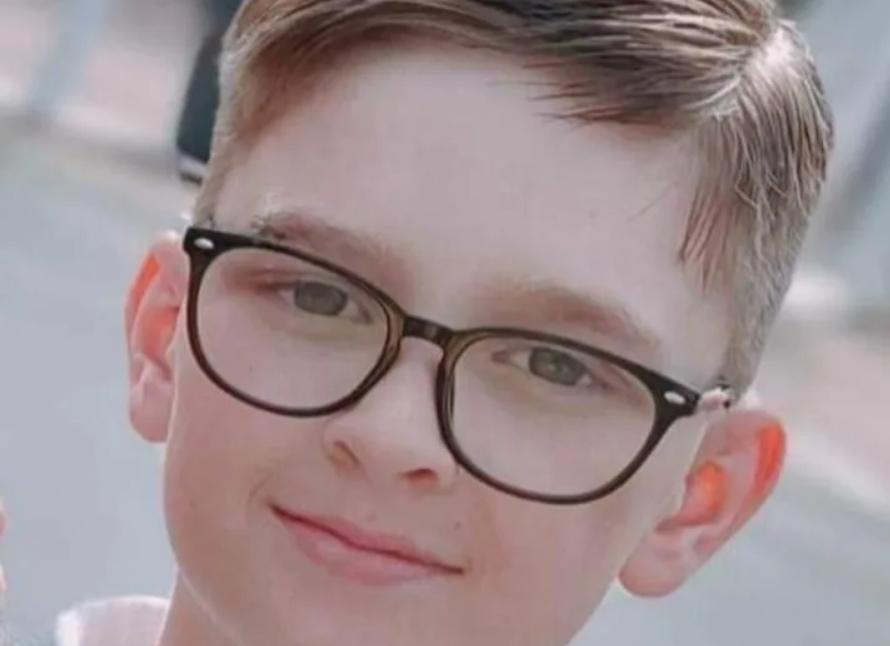
A 13-year-old student, the victim of homophobia and bullying at his school, was buried Saturday, a week after he died by suicide. The death shook Golbey, a small town of around 8,000 people in northeastern France.
Identified only as Lucas, the young boy was a student at the Louis Armand College (a rough equivalent to an American middle school) in Golbey.
According to the French LGBTQ media outlet Têtu.com and media outlet ici par France Bleu et France 3, Valérie Dautreme, the academic director of the national education services in the Vosges, labeled the news “terrible” and acknowledged Lucas and his mother reported “mockery” related to the teenager’s sexual orientation from the first parent-teacher meeting last fall.
While the family has yet to comment on the circumstances leading to their son’s death, Dautreme says “the situation was taken very seriously by the establishment, by the head teacher,” claiming that school staff and peer groups intervened. She then said that in regards to the initial reporting of the bullying that “for us, and I mean at this stage, the situation had been resolved: Lucas said afterwards that things had settled down, that he was no longer being teased.”
Referring to his suicide she noted, “obviously, the investigation is in progress and for the moment, these are only incomplete elements.”
“The family is destroyed by grief. The boy’s mother is asking for justice, she wants the investigation to identify those responsible so that they are punished — underlined the family’s attorney, Catherine Faivre. “Lucas had expressed that he was gay and his classmates were aware of it.”
The case drew the attention of French first lady Brigitte Macron, who has intervened taking up the cause against bullying in the nation’s schools using Lucas’ case to spotlight the need for reform and prevention.
“I am in favor of raising the awareness of teaching staff and those who work in universities and high schools to better identify cases of harassment,” Macron told Le Parisien.
A portion of the teen’s diary was publicly disclosed in which he had written “I want to end it,” press accounts noted that he kept the diary locked in his desk drawer in his bedroom. The diary’s existence was disclosed as part of the ongoing investigation into the teen’s death by Frédéric Nahon, the local prosecutor who noted in press accounts that the teenager’s diary was examined by the investigators who found there are no direct allusions to the reasons for the suicide.
Nahon said that the first interrogations of the family’s acquaintances and neighbors confirmed the existence of repeated homophobic teasing and insults. Nahon is trying to determine “the exact content of the insults, the duration over time of the bullying acts and any omissions by those who were aware of the facts.” No criminal complaints have been filed.
According to the most recent statistics every year in France 700,000 students are victims of harassment at school.
Last February France’s Parliament adopted a new law that will make school bullying a criminal offence, which either students or staff can be prosecuted for Euronews reported.
Those found guilty under the new legislation face a €45,000 ($48,685.50) if the victim of bullying is unable to attend schools for up to eight days.
But more serious incidents can be punished with up to 10 years imprisonment and a fine of €150,000 ($162,285) for longer periods of school absence or if the victim commits suicide or attempts to.
“Homophobia kills,” openly gay Transportation Minister Clément Beaune said to French media outlets after learning of the teen’s suicide.
The Louis Armand College, which has 697 students, is involved in the national pHARe system to fight against bullying and its teachers are trained and students are also required to take classes to prevent bullying.
A crowd-fundraiser to defray funeral costs for the family was able to raise €7,554 ($8,182.76).
***************************************************************************************
The Trevor Project provides a safe, judgment-free place to talk for LGBTQ youth at 1-866-488-7386.
If you or anyone you love is experiencing mental health issues or suicidal thoughts, please reach out for help. You can call or text the number 988, which will direct you to the National Suicide Prevention Lifeline.
It is free and available 24 hours a day.
European Union
Gay Polish government minister represents change of course
Deputy Justice Minister Krzysztof Śmiszek took office in December
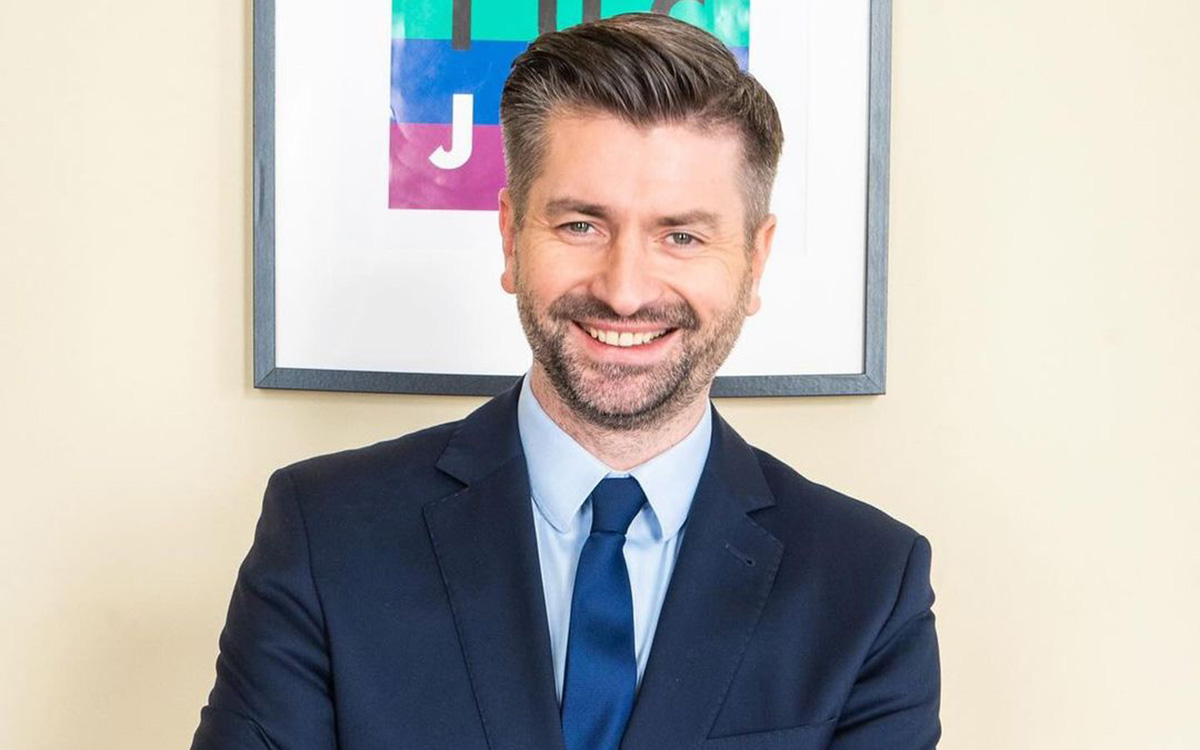
WARSAW, Poland — Poland’s only openly gay Cabinet minister on Tuesday spoke with the Washington Blade about the fight for LGBTQ rights in his country, Ukraine and U.S. politics.
Deputy Justice Minister Krzysztof Śmiszek assumed his post last Dec. 13 after Donald Tusk became prime minister.
The Civil Coalition, a group of opposition parties that Tusk leads, two months earlier won a majority of seats in the Sejm, the lower house of Poland’s parliament. President Andrzej Duda, an ally of the conservative Law and Justice party who opposes LGBTQ rights, remains in office as part of the governing coalition.
Śmiszek, a member of the New Left party, has been a member of the Sejm since 2019.
He was born Stalową Wola, a city in southeastern Poland that is close to the country’s borders with Ukraine and Slovakia. Śmiszek now represents Wrocław, the country’s third largest city that is located in southwestern Poland.
He is a lawyer who worked for the Campaign Against Homophobia, a Polish LGBTQ rights group, for several years before he entered politics. Śmiszek’s partner is former MP Robert Biedroń, who is now a member of the European Parliament.
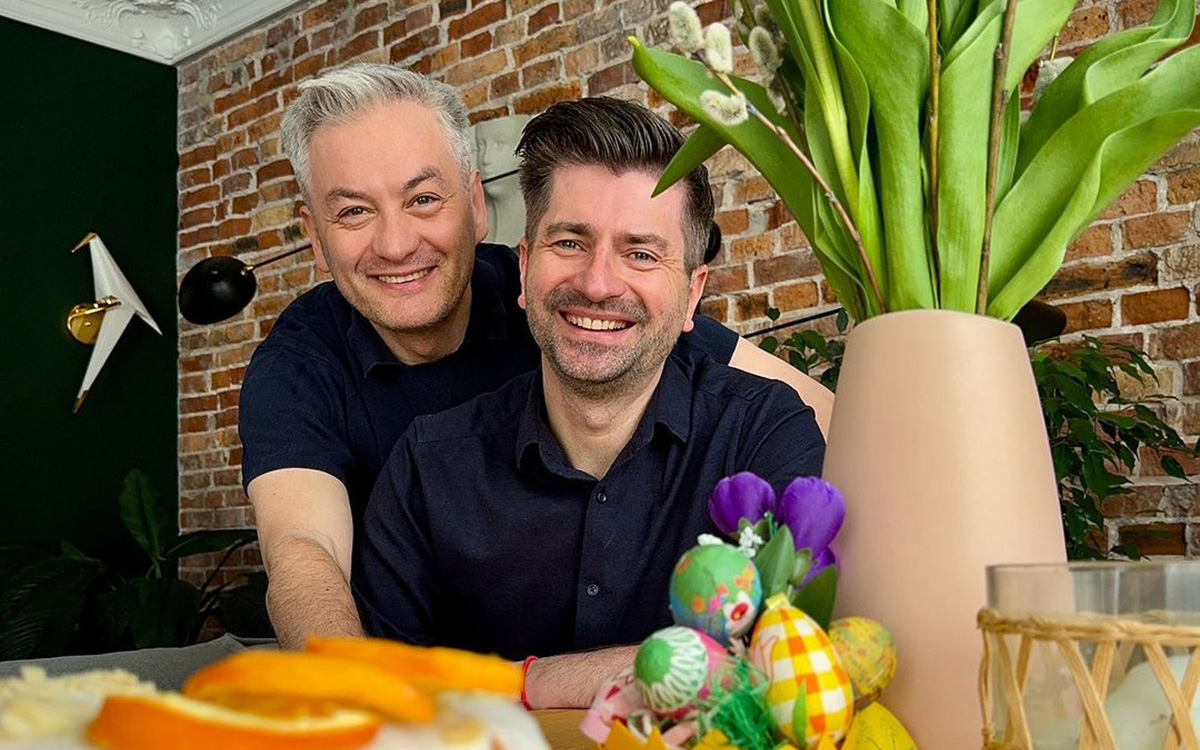
Śmiszek noted to the Blade during an interview in his office that the Justice Ministry has introduced a bill that would add sexual orientation and gender identity to Poland’s hate speech and hate crimes laws.
The Council of Ministers, which includes members of Tusk’s Cabinet, is expected to approve the proposal in the coming weeks. Śmiszek said MPs will support the measure, even though critics say it would limit free speech.
“It was quite natural for us, I would say, to agree on that,” he told the Blade. “We all witnessed all these statements and horrible actions towards LGBT (people during the previous government.)”
Duda became Poland’s president in 2015.
He said before he defeated Warsaw Mayor Rafał Trzaskowski in the country’s 2020 presidential election that LGBTQ “ideology” is more dangerous than communism. Duda has also claimed LGBTQ Poles are “a threat to the family” and “want to sexualize children.”
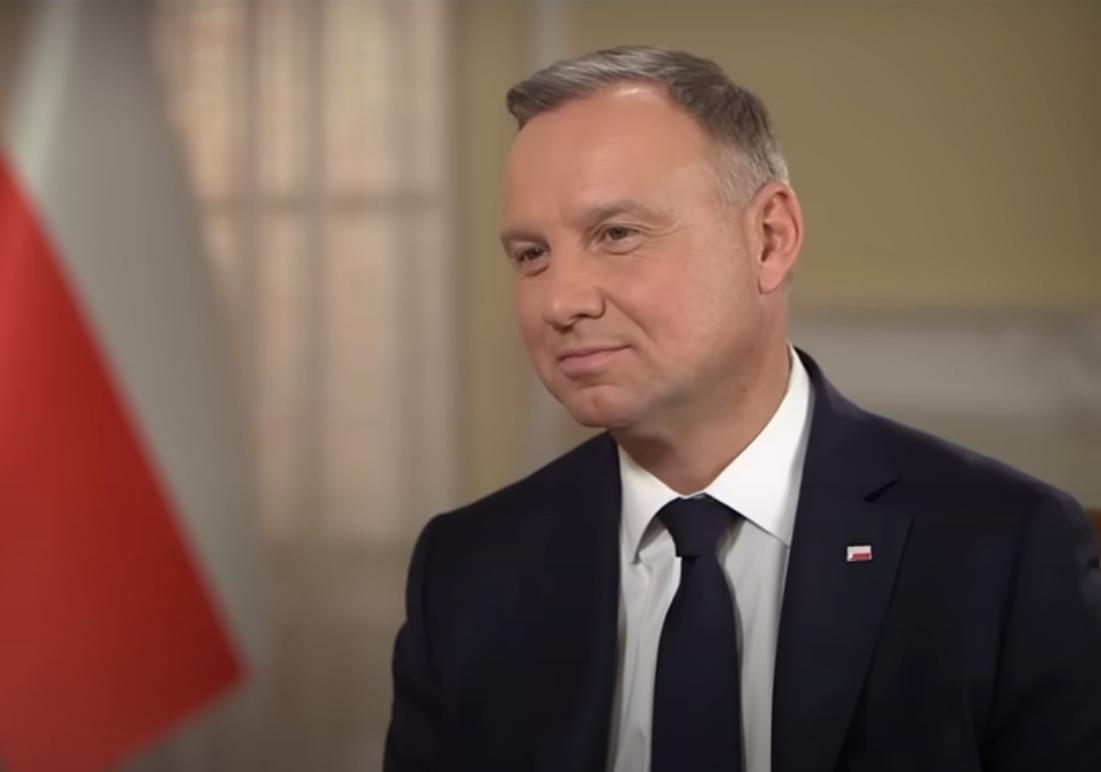
More than 100 municipalities across Poland ahead of the election adopted resolutions that declared themselves “LGBT-free zones.”
The Law and Justice Party and Poland’s influential Roman Catholic Church supported them, while the European Union cut funding to municipalities that adopted them. The Warsaw Voivodship Administrative Court on Feb. 6 struck down the country’s final “LGBT-free zone” resolution that Mordy, a town in Siedlce County in eastern Poland that is roughly half way between Warsaw and the Belarusian border, adopted in 2019.
Tusk has indicated his support of a civil partnership bill, but Śmiszek conceded it will be a “huge” challenge to secure passage in parliament because it is not an official part of the coalition government’s manifesto.
Śmiszek noted Poland has dropped its opposition to the case of a transgender man who filed a lawsuit in the European Union Court of Justice in Luxembourg after Romania refused to recognize his legal name and gender change that he received in the U.K.
“We are trying not only to change the legal situation of LGBTI folks here in this country, but also we are taking a completely new approach, also of Poland, as a member of the European Union,” he said.
The Justice Ministry last month for the first time with LGBTQ activists.
Śmiszek said former Justice Minister Zbigniew Ziobro, a member of the right-wing Sovereign Poland party, wrote many of the previous government’s proposals that targeted LGBTQ people and women. Śmiszek further described the ministry before the current government took office as a “governmental center of anti-LGBTI actions.”
“That was a very moving meeting that after eight years of hatred that was produced here in this ministry,” he said.
Śmiszek pointed out Duda’s first presidential veto was a bill that would have made the process through which transgender Poles could undergo gender-affirming surgery easier. Śmiszek said the new government wants “to make the lives of trans people a bit better and bearable in terms of relations with the state and with relations with the administration,” but conceded it “is difficult.” He also said Duda, the Constitutional Tribunal and the Catholic Church remain barriers to the advancement of LGBTQ rights.
“We are not starting from scratch in terms of new initiatives,” Śmiszek told the Blade. “We are getting back to the good solutions.”
“However, we are fully aware that there are plenty of conservative anchors and blockages in the institutional architecture,” he added.
Śmiszek also said his sexual orientation is not an issue to Tusk, to his fellow ministers and MPs.
“I haven’t heard any discussion or hesitation about should we have this guy in the ministry or not,” he said. “My sexual orientation is not an issue at all.”
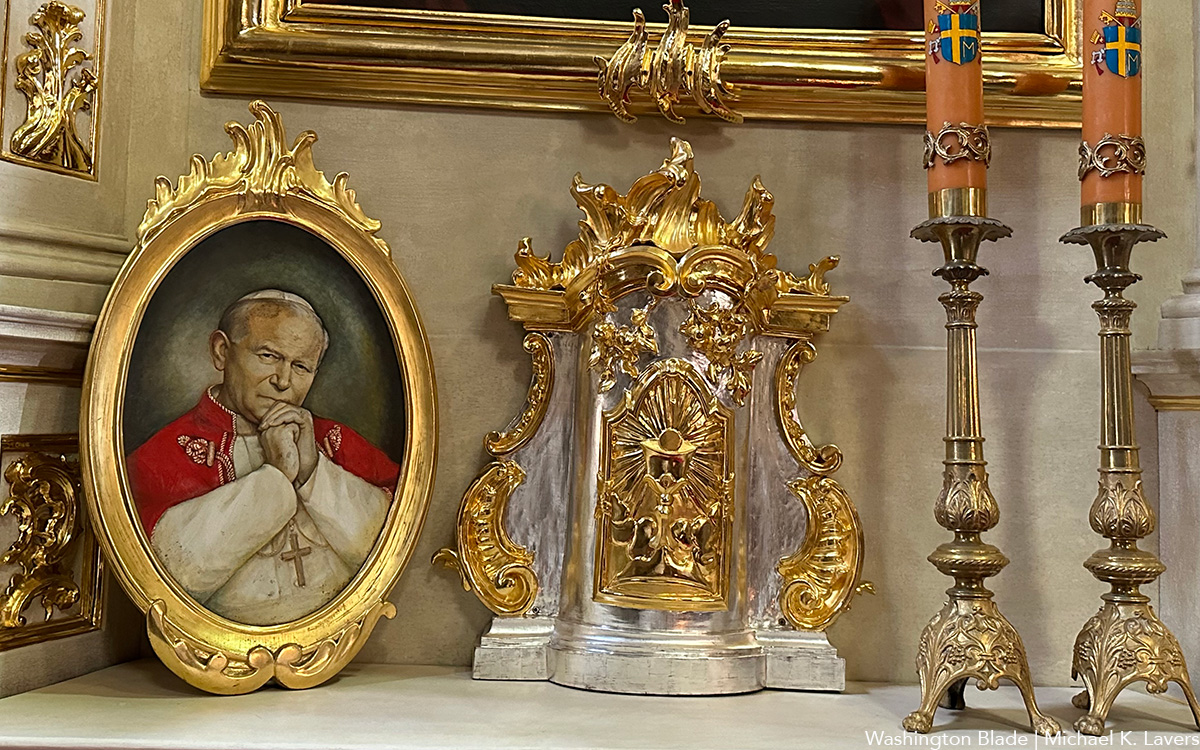
Poland knows Russia ‘very well’
Russia on Feb. 24, 2022, launched its war against Ukraine.
Śmiszek noted upwards of 2 million Ukrainians sought refuge in Poland, and many of them have remained in the country.
“Polish society passed its exam in terms of humanitarian aid and compassion for those who are victims of this aggressive war of Russia,” said Śmiszek.
A Russian missile on Nov. 15, 2022, killed two people in Przewodów, a village Hrubieszów County that is on the Ukrainian border. Another Russian missile on March 24 briefly entered Polish airspace near Oserdów, a village that is less than five miles away from Przewodów.
Śmiszek told the Blade he is increasingly concerned the war will spread to the Baltic countries — Lithuania, which borders Poland, and Latvia and Estonia — and to Poland itself.
The Russian exclave of Kaliningrad on the Baltic Sea also borders Poland.
“We are observing now, especially during the last few months, that something is going to happen,” he said.
Śmiszek acknowledged Ukraine in recent months has suffered setbacks on the battlefield, and the U.S. “is not very open to providing any help.”
“You can see Trump, what he is saying. You can also see some Western countries that are still hesitating,” he said. “This is a growing, unspoken emotion within Polish society that something is going to happen, the war will knock on our doors soon, in the next couple of years, and we are the second or third target of Putin if he’s not stopped by the united West.”
Śmiszek added Poland knows the Russians “very well.”
“That is why this is not something unusual when a Pole thinks about Russians invading our country,” he said. “It’s happened before.”
Tusk and Duda last month met with President Joe Biden at the White House in the hopes that Congress would pass a Ukraine funding bill. Śmiszek while speaking to the Blade criticized the delay.
“I know that they are trying to build their popularity, saying we should not spend billions of dollars for the wars that do not concern us and Russia will never attack us, blah, blah, blah,” he said. “In a way I do understand this rhetoric, but I don’t understand … it’s really a short-sighted approach.”
“I really count on changing the approach of the U.S. because this is really a huge threat to world democracy, to human rights and we always perceive the U.S. as a kind of element of guarantees for democracy around the world,” added Śmiszek. “This time the U.S. is not passing its exam, especially the conservative part of American politics.”
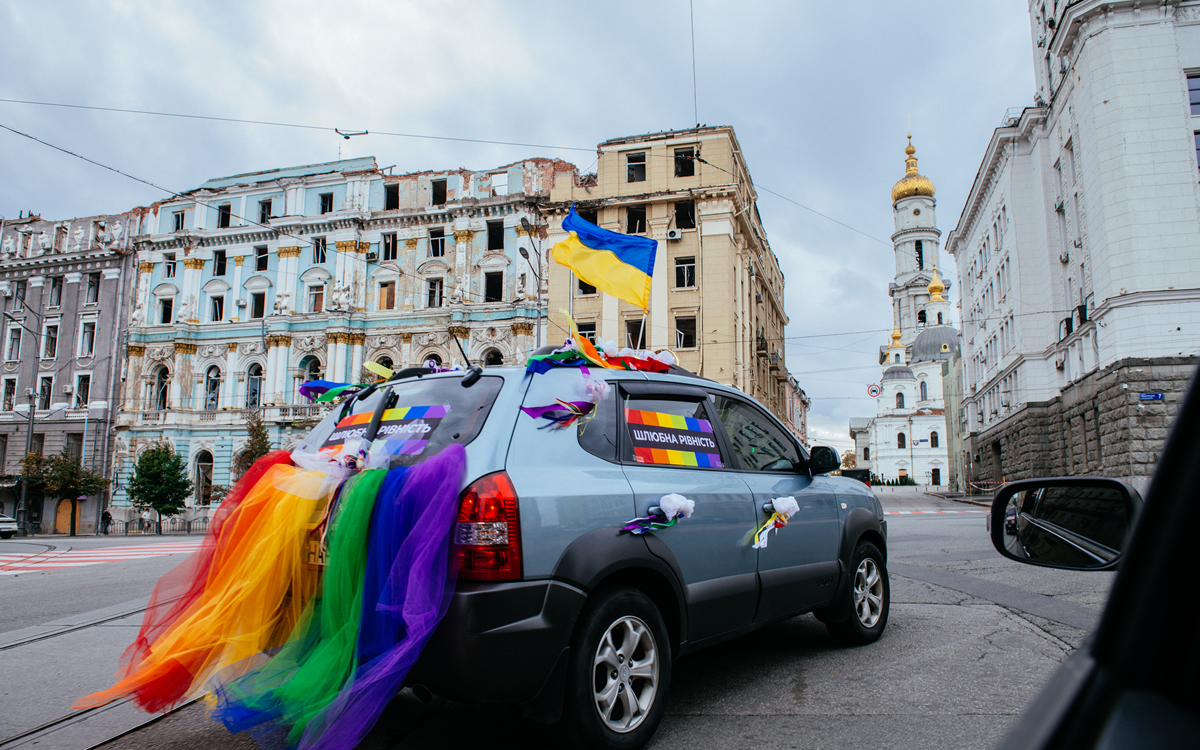
Śmiszek said Poland will continue to work with the U.S., regardless of who wins this year’s presidential election. He did, however, express concerns over former President Trump based on his positions on LGBTQ and reproductive rights, his U.S. Supreme Court nominees and Ukraine.
“This is kind of worrying,” said Śmiszek. “This kind of approach to fundamental issues very relevant to the stability of the world is now in the hands of the guy who you cannot predict what his decisions will be when the time comes and it will be a need for taking very serious decisions concerning the stability of the world.”
“He portrays himself as quite unstable I would say in terms of values he wants to defend,” he added.
European Union
Irish Prime Minister Leo Varadkar announces resignation
Gay head of government first elected in 2017
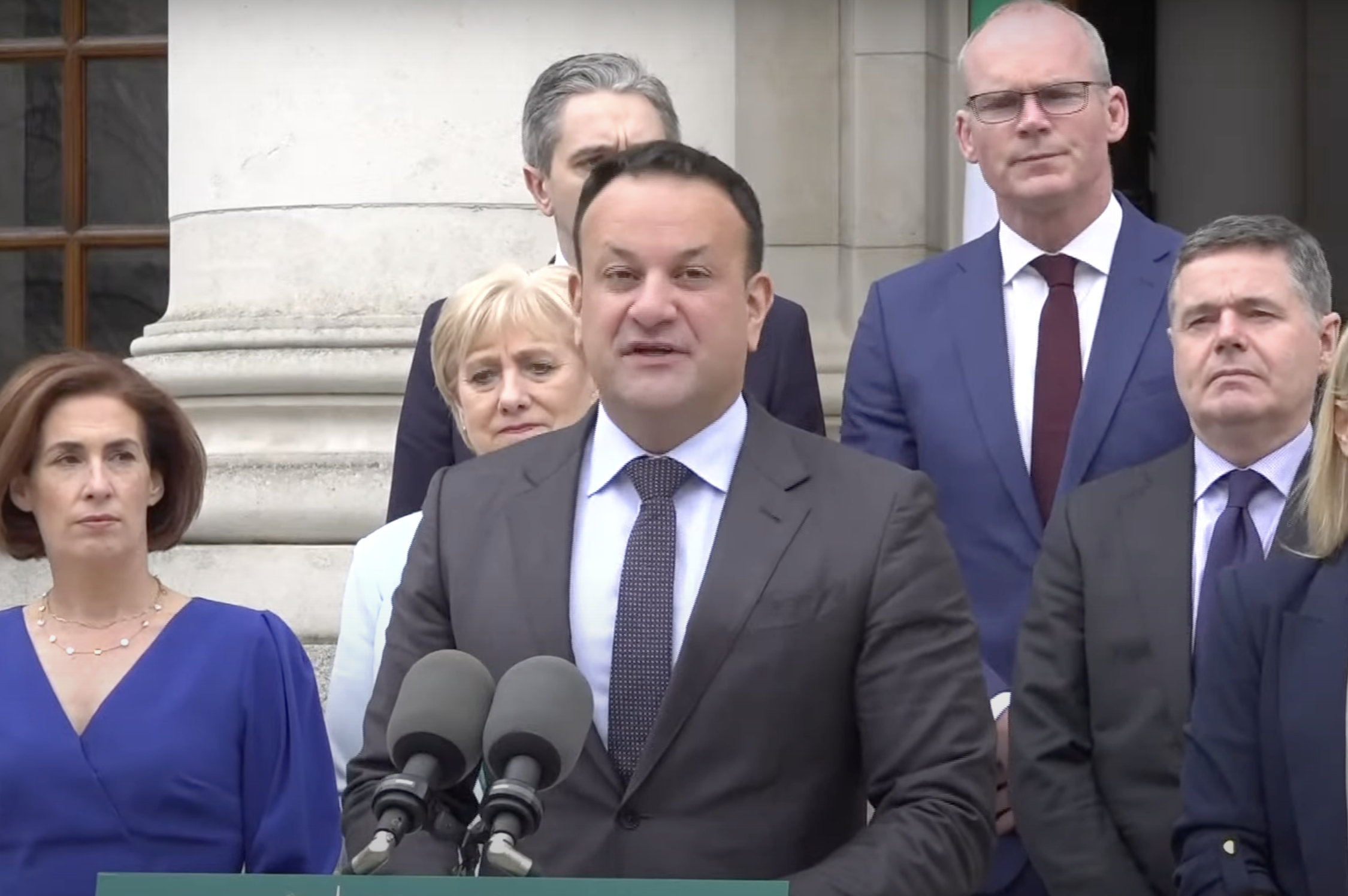
Irish Prime Minister Leo Varadkar on Wednesday announced he will step down once his party selects his successor.
Varadkar, who is gay, also said he will immediately resign as Fine Gael’s leader.
“My reasons for stepping down are both personal and political,” said Varadkar in comments he made outside the government’s offices in Dublin, the Irish capital.
Varadkar, 45, became Ireland’s first gay prime minister in 2017.
He raised LGBTQ issues with Pope Francis when he visited Ireland in 2018.
Varadkar the following year attended a St. Patrick’s Day breakfast at then-Vice President Mike Pence’s official residence in D.C. with his husband, Dr. Matthew Barrett. Varadkar and Barrett last week attended a St. Patrick’s Day event that Vice President Kamala Harris and second gentleman Doug Emhoff hosted at the Naval Observatory.
Varadkar in 2020 stepped down after Fine Gael lost 15 Parliament seats in a general election, but remained in the Irish government. Varadkar once again became prime minister in 2022.
Varadkar announced his resignation four days after Irish voters rejected proposals that would have amended language in the country’s constitution that says a woman’s place is in the home and families are based on marriage. (Ireland in 2015 became the first country to extend marriage rights to same-sex couples through a referendum.)
The Irish government last year pledged to ban so-called conversion therapy. The country’s hate speech law has included gender identity since 2022.
“I’ve proudly made the country a more equal and more modern place when it comes to children, the LGBT community, equality for women and their bodily autonomy,” said Varadkar.
European Union
Surge in transphobic rhetoric across Europe sparks concern ahead of EU elections
ILGA-Europe released comprehensive report on Thursday

As the European Union prepares for the upcoming elections in June, an increase in anti-LGBTQ sentiments and transphobic rhetoric in particular from politicians across the continent has sparked concern.
A comprehensive report that ILGA-Europe released on Thursday reveals a stark rise in hate speech from politicians in 32 European countries, with 21 of them being EU member states.
The 13th Annual Review of the Human Rights Situation of LGBTQ People in Europe and Central Asia sheds light on a concerning trend of hate speech targeting the LGBTQ and intersex community. A significant portion of these statements has been directed at trans people in various EU member states that include Austria, Bulgaria, Croatia, Cyprus, Czechia, Denmark, Germany, Greece, Hungary, Iceland, Ireland, Italy, Latvia, Luxembourg, the Netherlands, Norway, Romania, Portugal, Slovakia, Spain and Sweden.
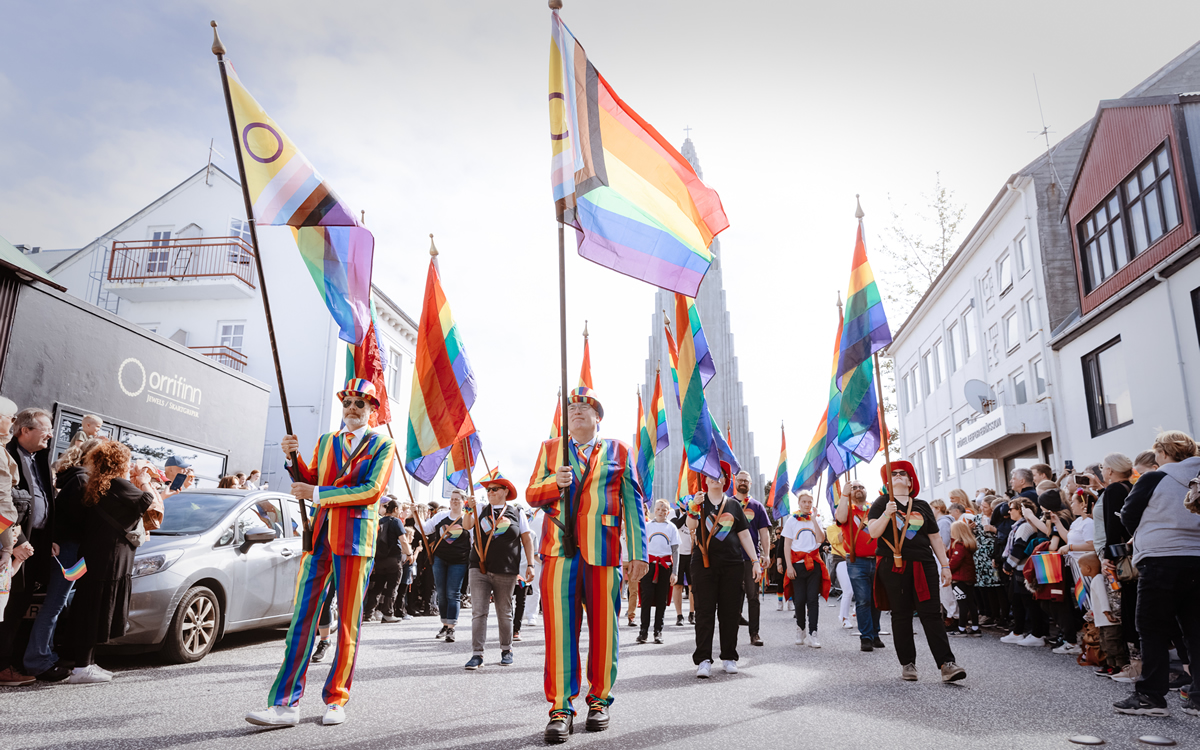
Politicians have increasingly utilized anti-trans rhetoric, often weaponizing children as part of scare tactics to generate opposition to trans minors’ access to healthcare and educational restrictions. This strategy extends to a broader trend where politicians argue that limiting information about LGBTQ individuals is necessary to protect minors.
The report underscores the detrimental impact of demonization by politicians and attempts to introduce restrictive legislation. These actions have contributed to a rise in suicide rates and mental health issues, particularly among young LGBTQ individuals. Moreover, the report notes an escalation in violent protests outside schools and libraries, creating unsafe environments for young people.
The fear-mongering tactics have further exacerbated attacks on LGBTQ people.
Out of the 54 countries covered in the review, only six reported no hate crimes in 2023. In the remaining 48 countries, verbal and physical violence, with a focus on trans people, were prevalent. Only one EU member state reported no hate crimes.
“The very core values and standards upon which the EU was founded are being called into question,” said ILGA-Europe Advocacy Director Katrin Hugendubel.
She emphasized that human rights, especially those of LGBTQ people, are facing a significant challenge from far-right forces. Hugendubel highlighted the divisive nature of exploiting LGBTQ rights to undermine democracy, human rights and the rule of law.
In response to these alarming trends, ILGA-Europe will launch the “Come Out 4 Europe” campaign next week. The campaign aims to provide candidates for the European Parliament with an opportunity to demonstrate their commitment to supporting and protecting the rights of LGBTQ people.
“LGBTQ rights are under attack, and children are being harmed in the process,” ILGA-Europe Executive Director Chaber stressed.
The “Come Out 4 Europe” campaign will call for clear political commitments on safeguarding human rights, democracy, and freedom from candidates in the upcoming European Parliament elections in June.
-

 LGBTQ Non-Profit Organizations5 days ago
LGBTQ Non-Profit Organizations5 days agoDay of [no] silence, a call to speak out against anti-LGBTQ+ hate
-

 Africa1 day ago
Africa1 day agoCongolese lawmaker introduces anti-homosexuality bill
-

 Colorado4 days ago
Colorado4 days agoFive transgender, nonbinary ICE detainees allege mistreatment at Colo. detention center
-

 Politics4 days ago
Politics4 days agoFirst lady warns Trump is ‘dangerous to the LGBTQ community’ at HRC event












